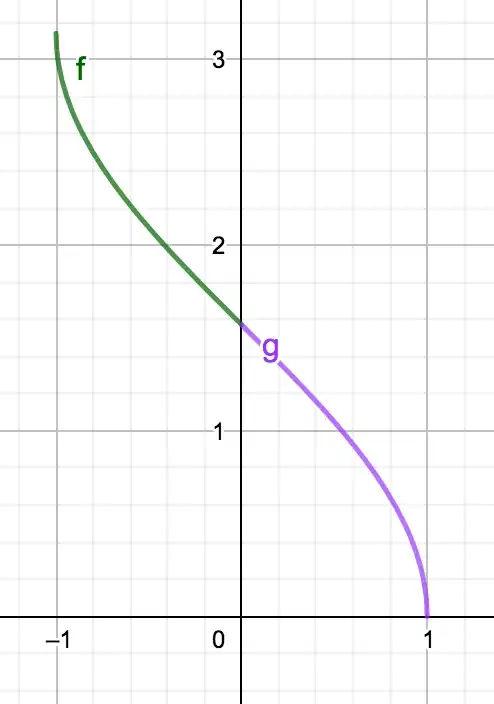$\cos^{-1}x$, now here $x\in [-1,1]$, we have a requirement to rewrite $\cos^{-1}x$ in terms of $\sin^{-1}$
If $x\ge0$, $\cos^{-1}x$ will give value in the range $\left[0,\dfrac{\pi}{2}\right]$, so $\sin^{-1}\sqrt{1-x^2}$ seems to be correct as this will also give value in the range $\left[0,\dfrac{\pi}{2}\right]$
But if $x<0$, $\cos^{-1}x$ will give value in the range $\left(\dfrac{\pi}{2},\pi\right]$, so in this case what should be $\sin^{-1}x$, should it be $\sin^{-1}\sqrt{1-x^2}$ or $\sin^{-1}-\sqrt{1-x^2}$ ?
If we go with $\sin^{-1}\sqrt{1-x^2}$, then it will give value in the range of $\left(0,\dfrac{\pi}{2}\right]$ or if we go with $\sin^{-1}-\sqrt{1-x^2}$, it will give in the range $\left[-\dfrac{\pi}{2},0\right)$
Hence if $x<0$, there seems no way we can rewrite $\cos^{-1}x$ in terms of $\sin^{-1}$.
What's the catch here, but in most of the textbooks if you see, while giving proofs or solving problems, $\cos^{-1}x$ is rewritten as $\sin^{-1}\sqrt{1-x^2}$, without any constraints on $x$.

